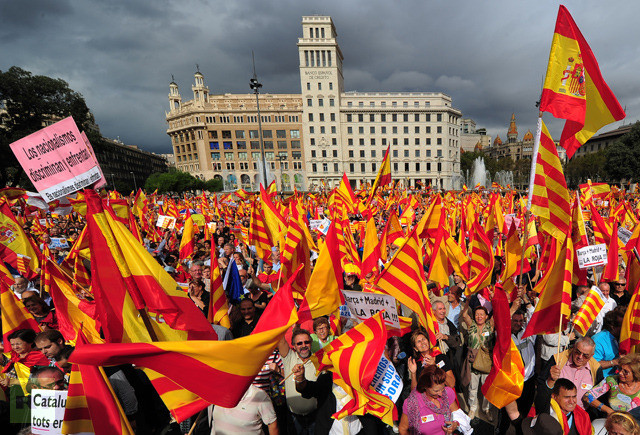Catalan vote draws muted EU response
Published on 12 november 2014Spain has already dismissed the meaning of the ballot.
"It is not the Commission's role to express an opinion on internal organisational matters linked to the constitutional arrangements of member states," said European Commission spokesman Margaritis Schinas.
Ian Duncan is Scottish and a British Conservative MEP; he told euronews that Madrid's legalistic riposte to pro-independence Catalans is not the answer.
"I don't believe this issue can be resolved in a courtroom," he said. I think that would be a discomforting place for a democrat to witness that resolution. I would like to believe this will be resolved at the ballot box, in a consensual way."
But some analysts question whether referenda can settle political disputes.
For Fraser Cameron of the European Policy Centre, such votes can split the public and they are often used to voice dissatisfaction with an unpopular government.
"Referendums are rarely in recent history the mechanism to bind people together, there are quite often divisive in a way," Cameron said. "So we have representative governments in all our European countries, and that is for me the best way to actually produce results which are agreed to by a majority."
The question now is what impact the Scotland and Catalonia votes will have on other separatist movements, such as in Spain's Basque Country or Flanders in Belgium.
Source: EuroNews
Photo sources: RT, ClementCrochet


